I have recently became familiar with C# application settings, and it seems cool.
I was searching for a way to store a list of custom objects, but I couldn't find a way!
Actually I saw a post to store int[], but it wasn't helpful for this problem.
I tried to change the config of that solution in order to make it suitable for my problem. the XML config file of that was:
<Setting Name="SomeTestSetting" Type="System.Int32[]" Scope="User">
<Value Profile="(Default)" />
</Setting>
I tried to address my object as quoted below in the type attribute but it wasn't helpful since it doesn't recognizing my object... I tried "type = List" and "type="tuple[]"
both of these options didn't help me!
I have a class looks like:
class tuple
{
public tuple()
{
this.font = new Font ("Microsoft Sans Serif",8);
this.backgroundcolor_color = Color.White;
this.foregroundcolor_color = Color.Black;
}
public string log { get; set; }
public Font font { get ; set; }
public String fontName { get; set; }
public string foregroundcolor { get; set; }
public Color foregroundcolor_color { get; set; }
public string backgroundcolor { get; set; }
public Color backgroundcolor_color { get; set; }
public Boolean notification { get; set; }
}
and I want to store a list in application setting.
So is there any way to achieve this purpose.
Thanks in advance.
Cheers,
